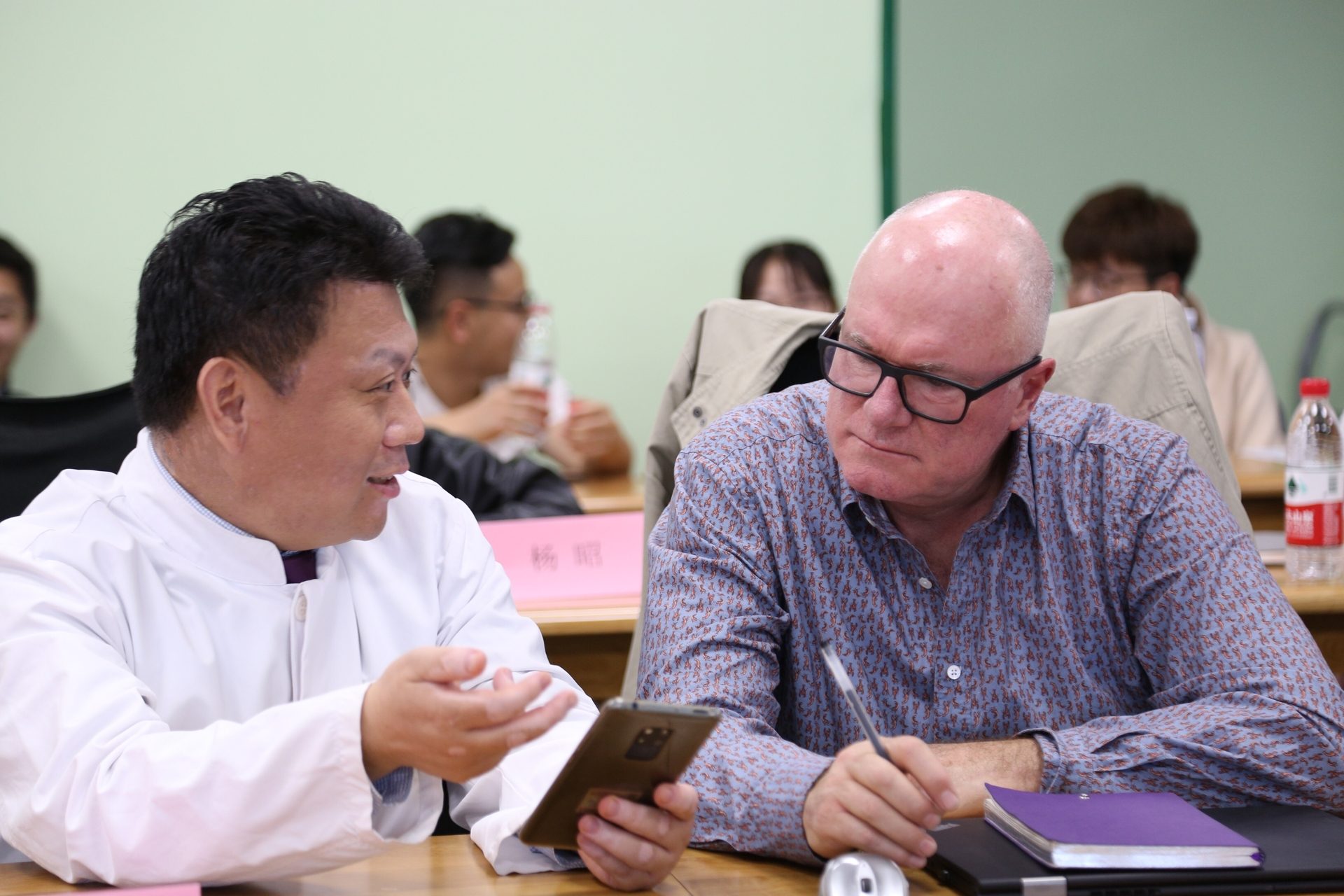
Chinese and Australian researchers gather in Shanghai for joint advancement of the INTERACT4 research project
On October 31, 2019, the first investigator meeting of Intensive Ambulance-delivered Blood Pressure Reduction in Hyper-Acute Stroke Trial (INTERACT4) was held in the Shanghai East Hospital of Tongji University. Over 90 specialists including professor Craig Anderson, Executive Director of The George Institute China, and professor Li Gang, Director of the stroke center of Shanghai East Hospital of Tongji University attended the meeting.
The high mortality and disability rates of stroke has brought a heavy burden of disease to the world. The burden of stroke is particular high in China due to the large and high risk population, such that stroke is the leading cause of death in recent years. For acute stroke, which is a critical illness, the benefits of acute treatment are extremely time dependent. It is vital that new interventional measures can be tested rigorously for widespread acceptance to improve outcome from stroke.
Shortening the initial treatment time and improving access are important goals for patients with acute stroke. INTERACT4 is such a research project which is aimed at exploring the efficiency and safety of initiating hyper-early intensive blood pressure reduction treatment for patients with suspected acute stroke in the ambulance,. The study will also assess the cost-effectiveness of this intervention over conventional management, with the hope of providing evidence for patients, health policy makers, clinicians and health care managers.
Professor Craig Anderson, co-principal investigator of the study, said there is an international effort to improve the quality of stroke diagnosis and treatment by constantly trying to shorten the time from the onset of acute stroke to the treatment of thrombolysis or thrombectomy. “The hyper-early intensive blood pressure reduction treatment in ambulance explored by INTERACT4, is an effort in this area, which may be a potential prognostic approach to reduce hematoma enlargement and improve function for patients with stroke.”
Professor Li Gang, one of the other co-principal investigators said, “China has the highest burden of stroke, so it is of great significance to carry out the INTERACT4 project in China. In particular, relevant assessments are needed to assess whether interventional measures provide cost-effectiveness advantages to help patients, clinical practitioners and policy makers in making rational value judgments.”
This research will be initiated in Pudong New Area, Shanghai City in east China and Chengdu area in southwest China. INTERACT4 research will be scientifically guided by The George Institute China, implemented by Heart Health Research Center, and supervised by an international steering committee composed of global interdisciplinary experts (stroke, neurointensive care, neurology, gerontology, cardiovascular epidemiology and clinical trials).


